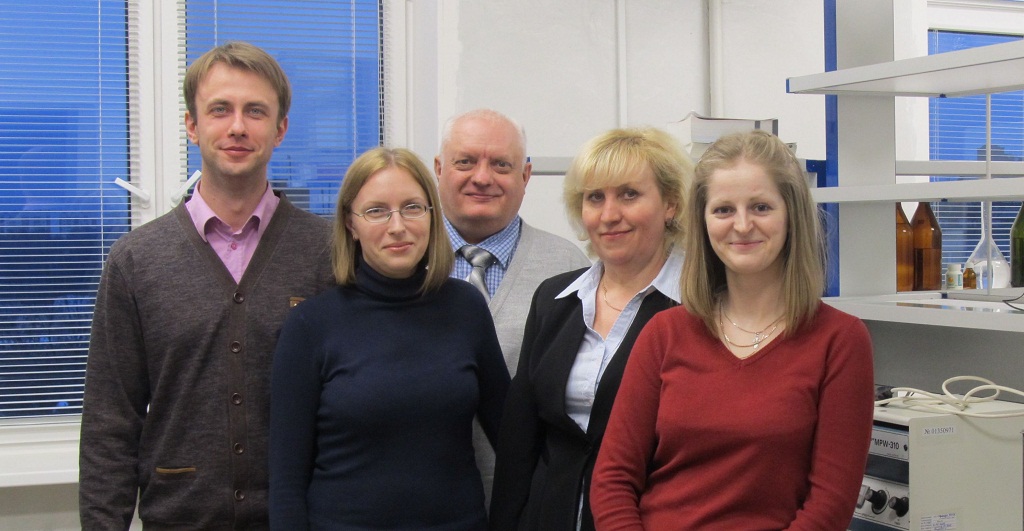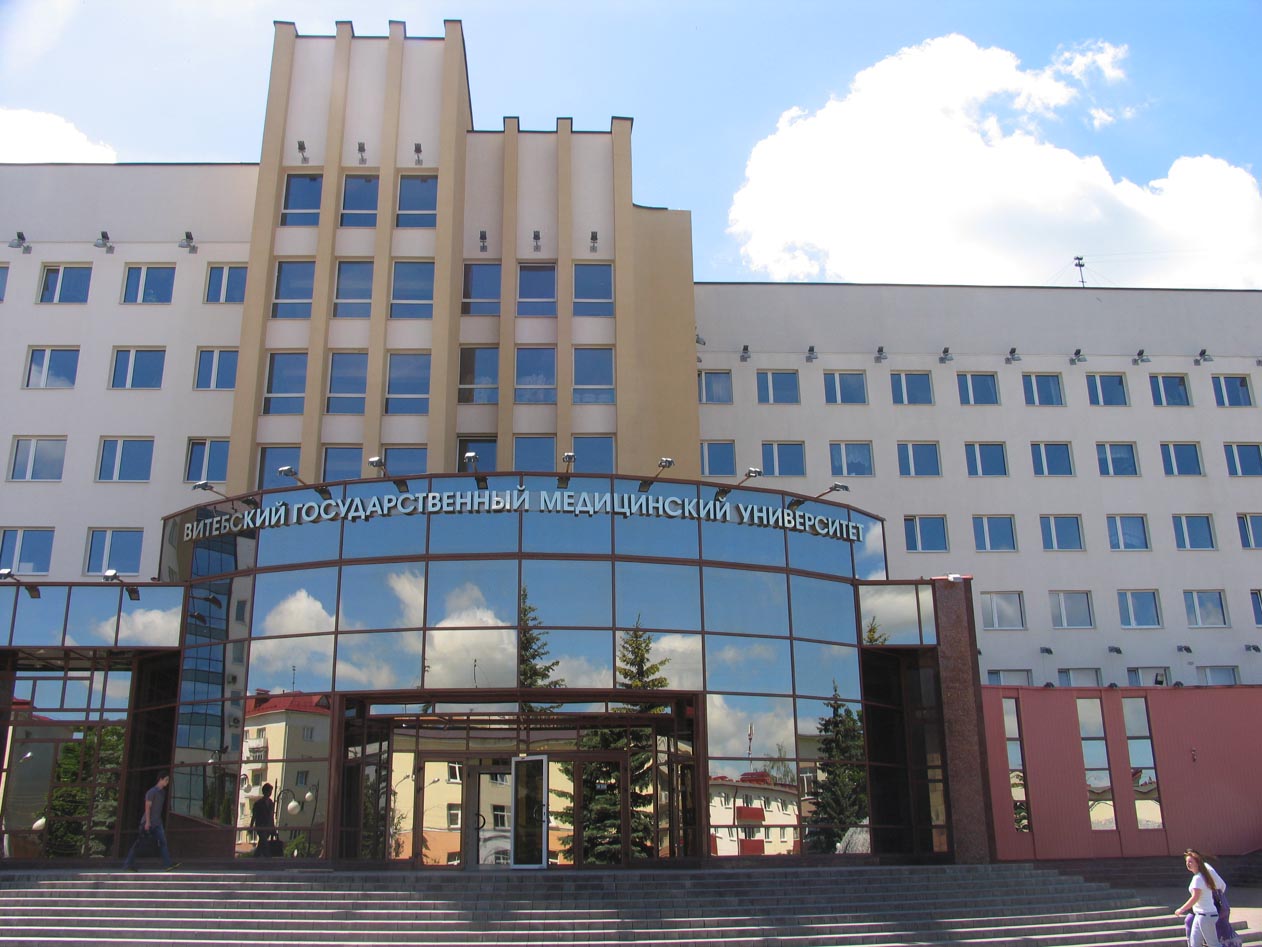
From left to right: Rzheussky Ye.V., Yatsko M.V., Fadeyev V.I., Goncharova T.N., Kiroshko S.А.
Group members:
Head of the group – chief researcher Fadeyev Vasily Ivanovich.
Senior researcher – Pivovar Michail Leonidovich.
Junior researcher – Rzheussky Yevgeny Vyacheslavovich.
Junior researcher–Yatsko Marina Victorovna.
Junior researcher– Goncharova Tatiana Nicolayevna.
Laboratory assistant –Kiroshko Svetlana Alexandrovna.
Equipment:
- Liquid chromatograph with diode-array detector Agilent 1100,
- Chromatograph Agilent 1260,
- Gas chromatograph with flame ionization detector THERMO TRACE GC,
- Gas chromatograph with flame ionization detector, Color 100,
- Polarimeter ATAGO AP-100,
- Spectrophotometer Specord 250.
Main directions of research activity:
- Bioequivalent studies of drugs;
- Determining medicines identity;
- Medicines quality control.
Accredited methods:
- Determining the authenticity and purity of the active substance by HPLC. The concentration range of 1 × 10-6 to 102% based on the dry matter.
- Determining the authenticity and purity of the active substance by gas chromatography. The concentration range of 1×10-6 to 102% based on the dry matter.
- Determining the homogeneity of the contents of an active substance in a dosage unit of medicine by spectrophotometry in the ultraviolet and visible parts. The concentration range of 1x10-3 to 102% based on the dry matter.
- Determining the quantitative contents by HPLC. The concentration range of 1 x 10-6 up to 102% based on dry matter with an error of ± 0,01%.
- Determining the quantitative contents by spectrophotometry in the ultraviolet and visible parts. The concentration range of 1x10-3 to 102% based on the dry matter accurate within 0.2%.
- Determining the quantitative contents by gas chromatography. The concentration range of 1 x 10-6 to 102% based on the dry matter.
- Determining the residual amounts of organic solvents by gas chromatography. The concentration range of 1 x 10-6 up to 102% based on dry matter with an error of ± 0,01%.
- Determining the mass homogeneity by a gravimetric method, with a range of 0,01-20,0, accurate to 0,0002 g
- Determining the average weight by a gravimetric method, with a range of 0,01-20,0, accurate to 0,0002 g
- Determining the residual moisture and dry matter by drying at constant temperature, with a range of 0-100, accurate to 0.03%.
- Determining the water by coulometric titration, with a range of from 10 mcg to 10 mg.
- Determining the organoleptic index by visual appearance (color, smell, texture, taste, homogeneity and particle size).
- Determining the actual amount of product (content) by unit counting method, with a range of 0-1000 units.
- Determining the transparency and turbidity of liquids of pharmaceutical substances and medicines by a visual method.
- Determining the degree of staining liquids of pharmaceutical substances and medicines by a visual method.
- Determining the pH of pharmaceutical substances and medicines by a potentiometry method, with a range of pH from 1 to 12 ± 0,05 units pH
 English
English  Русский
Русский  Беларуская мова
Беларуская мова  French
French  Spanish
Spanish  中文(繁體.台灣)
中文(繁體.台灣)  العربية الموحدة
العربية الموحدة 





























